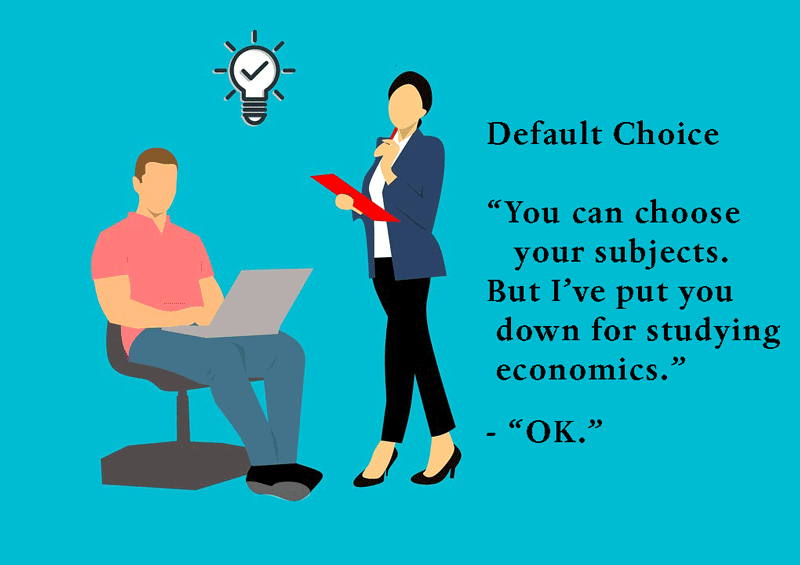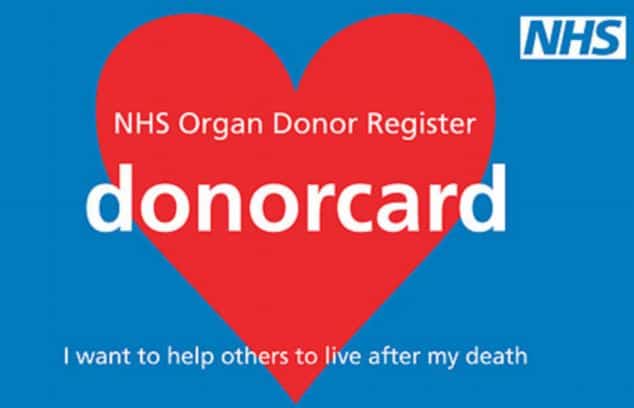This is an aspect of consumer behaviour theory which states consumers will stick with regular spending patterns and we are much more likely to choose the easiest option we are given
In the real world, we often purchase the goods/services that are presented as the automatic default choice. – We don’t take option to opt-out or choose something else.
Why default choices are popular
- Consumers don’t want to spend time looking around to see if something might be better.
- Changing product/service may give a long-term benefit. But, in the short term, there are costs (e.g. time) involved in making the switch. This is a deterrent to changing from what we have.
- The uncertainty of changing. If we stick with a default choice, we know what we get. If we change, we may get better, but we may get worse. Therefore, the certainty of staying with what we have is more appealing. This explains the popularity of strong brands, such as Coca-Cola and Starbucks. When we travel, we can rely on minimum standards of service if we go to these brands we know.
- There is a saying ‘If it ain’t broke, don’t fix it’. In reality, people may use this as a rough rule of thumb for purchases and spending patterns.
- Time. When looking at forms, we often don’t take time to read options and choose alternatives. We accept the options as given
Examples of default choices
- Going to other cities, and sticking with a popular chain, that you know quite well, e.g. McDonald’s, Starbucks.
- Buying the same newspaper every day.
- One of the successes of Google is that it comes as the search engine of preference for browsers like Mozilla. Although another search engine is one click away, most people don’t make effort to try an alternative.
How firms benefit from default choices
- Firms often end up charging loyal consumers higher price than new consumers. Customers who switch and join an electric company may get a discount, that existing customers don’t get.
- It is important to develop brand loyalty and strong advertising because this encourages the continued purchase of default choices.
- Many charities try to get people to sign up to small monthly contribution payments because once set up, it takes quite a bit of effort to overcome the inertia of cancelling.
Implications of default choice
- It limits the equi-marginal principle that states consumers choose goods depending on marginal utility/price. Default choices suggest that in many cases, consumers are not measuring utility.
Nudges and Default Choices
Behavioural economics notes how firms/government can nudge consumers into making certain selections by setting one option as the default choice.
- For example, pensions used to be encouraged but workers had to choose to enrol in a pension scheme.
- New pension schemes are different. You are automatically enrolled in pension scheme as a default choice – and a worker would have to opt out.
- If workers are signed up for pension as the default choice, then they are much more likely to sign up for the pension
Default choices and donar cards
Some countries automatically assume people are willing to donate organs – unless they opt out.
- Other countries adopt the other approach. The default choice is that permission is not granted – unless you carry a donor card and opt into the scheme.
- Countries with an opt-out – have much higher rates of organ donation.
- For example: France default option assumes opt-in. 100% of drivers donate organs. In the UK, that is closer to 17%
Related


